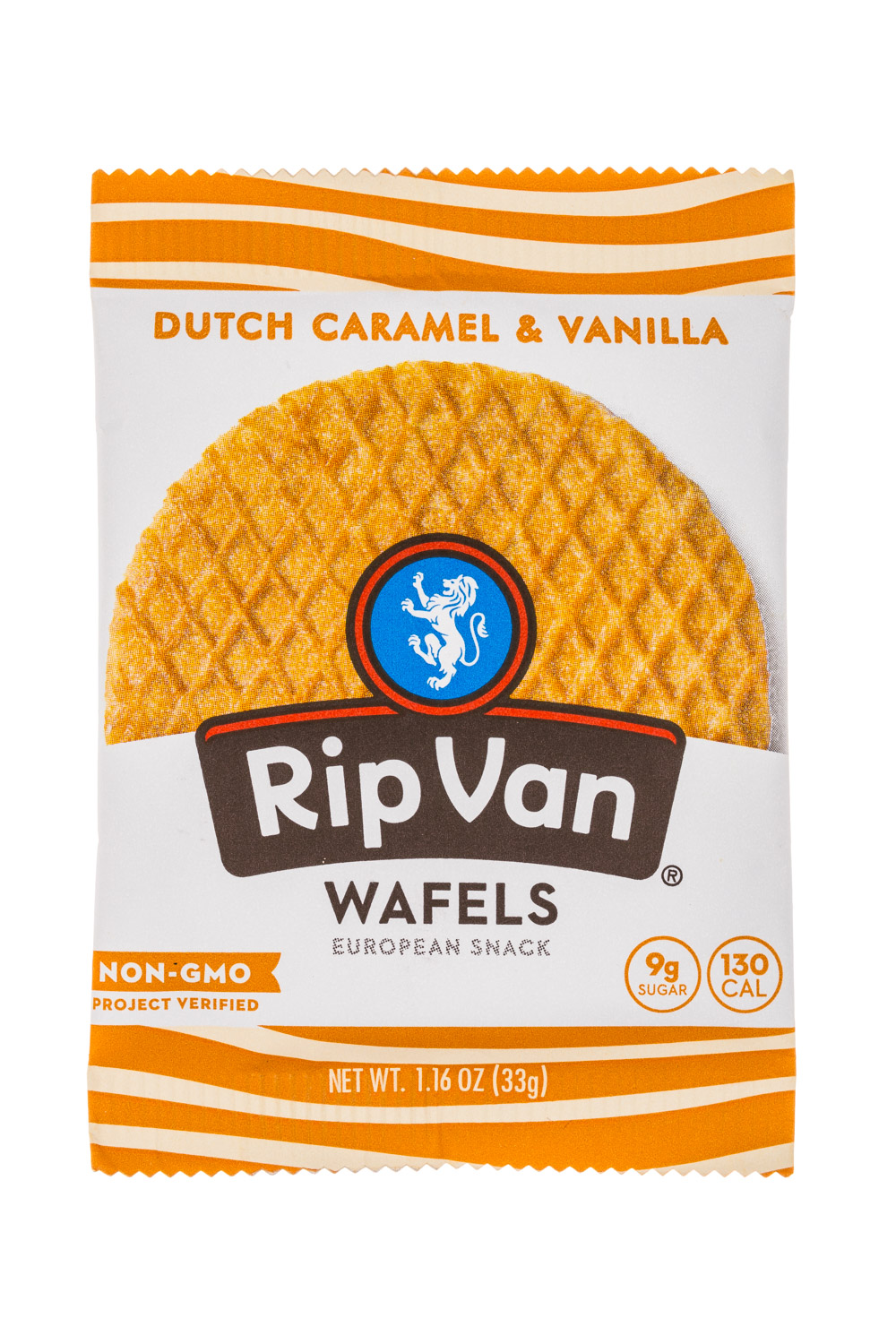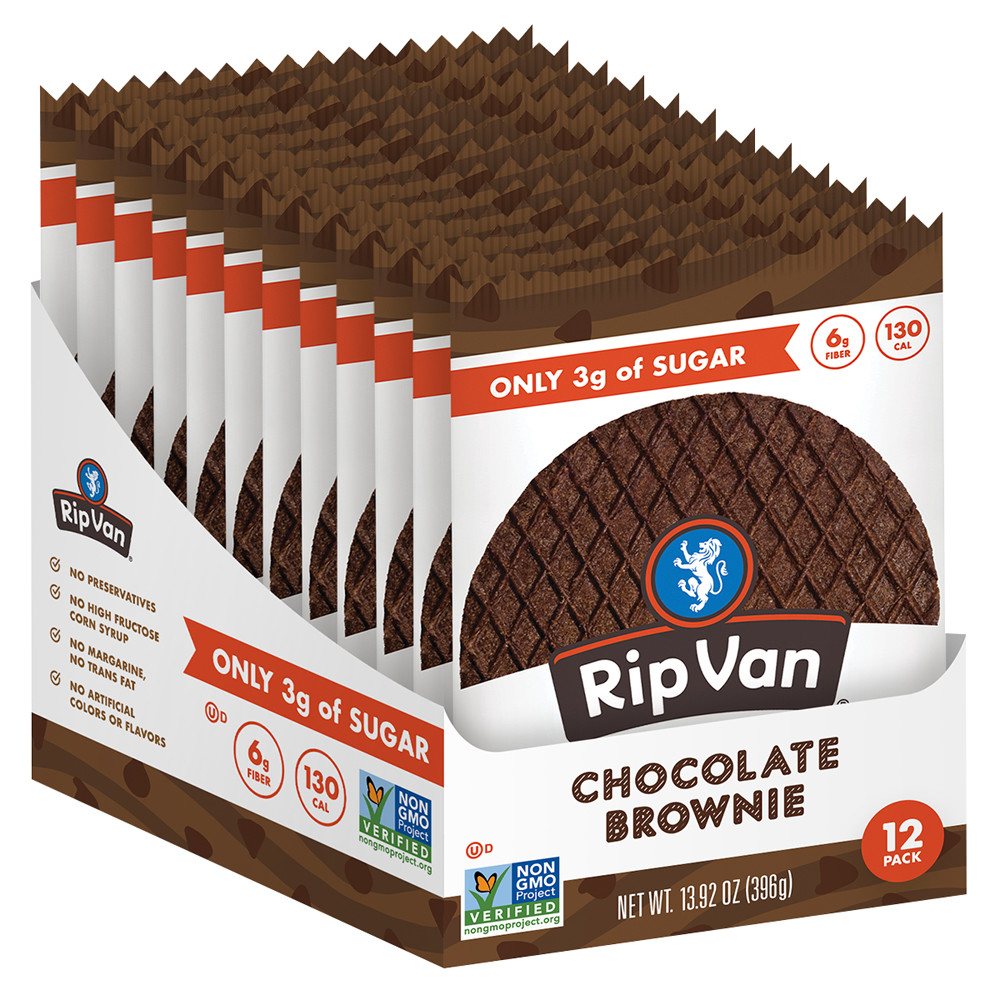
See nutritional information for fat content) 21 g sugar 41 g net carbs (total carbs - fiber). Leading Health Bar (Nutrition Specs Refer to 1 Health Bar, 1 Breakfast Bar and 1 Granola Bar Packet Respectively): 9 g protein 4 g fiber (Not a low fat food. See nutritional information for fat content) 5 g sugar 13 g net carbs (total carbs - fiber). Rip Van Wafels: 10 g protein 6 g fiber (Not a low fat food.

The low-sugar pouches are $3.99 while the low-sugar minis are 79 cents.10 g protein 6 g fiber 5 g sugar 13 g net carbs.


The suggested retail price range for the low-sugar, single-serve is $1.75 to $1.99 while the protein single-serve is $1.99 to $2.49. The team has presented its wafels at various trade shows, including the National Automatic Merchandising Association show. The company, with about 18 employees, is now focusing on convenience stores as well as micro markets, she said. The standard candy bar is the main competitor for the low-sugar, single-serve line. Protein bars are the main competitor for the company’s protein line, Quinn said, although there is no protein wafel on the market that is a direct competitor. They have also gained placement in Whole Foods Markets in Southern California, Publix stores and Wegmans Food Markets on the East Coast. The next big distribution move was getting into Starbucks stores nationwide, she said. The products are available in Vistar warehouses. The at-work market remains an important one, she said, although the company has since expanded to airlines and retailers. The wafel was a natural in the at-work environment, where it is often paired with coffee, she said. “It became the number one snack food in Silicon Valley,” Quinn said. The team began targeting technology companies and micro markets in Silicon Valley, where the company was originally based. She said the product is non-GMO, is free of sugar alcohols and is the only protein wafel of its kind available. “Our new protein wafel has 10 grams of protein per wafel and only five grams of sugar,” Quinn said. The second, newer line is a protein product. The low-sugar line includes a single-serve option and a “mini” package and a pouch package containing multiple unwrapped wafels. The filling is then placed between two slices that are then wrapped together. The staff makes the dough and the filling separately at its production facility. The wafels are available in five flavors: Dutch Caramel and Vanilla Snickerdoodle Cookie and Cream Honey and Oats and Chocolate Brownie. “You really wouldn’t notice the lack of sugar in it.” The products are crispy on the outside with a chewy center. The company sweetens the product with monk fruit extract, Quinn said. “It really is something that people can indulge without the guilt,” she said. The latest version, recently introduced, has only three grams of sugar. “We feel there’s no reason delicious food can’t also be healthy.”Īfter its first two years, the company introduced a wafel with 12 grams of sugar, followed by version three with nine grams of sugar. “Our company’s mission is to create better convenient foods people can enjoy and not have to feel guilty about it,” Quinn said. But the company recognized the consumer focus on low-sugar and low-calorie food. The original Rip Van Wafel contained 14 grams of sugar, which is the norm for other street wafels on the market, Quinn said. They soon realized they had a very popular product. He and his friend, Marco De Leon, began cooking them with a waffle iron out of their dormitory and selling them on the college green at Brown University. The single-serve wafel has five times less sugar than the top selling cookie and half of the net carbs with six times the fiber, she said.Ĭo-founder Rip Pruisken, born in the Netherlands, grew up enjoying street waffles and missed them when he moved to America.

Rip Van’s single-serve snack has gone from more than 14 grams of sugar to three grams in the past six years, said Danielle Quinn, business development analyst for the Brooklyn, New York based manufacturer. While largely known as a very sweet snack, one company, Rip Van, has devoted itself to offering a low-sugar wafel that carries an indulgent taste. Wafels, a Belgian and Dutch treat that are better known as “waffles” in the U.S., are making a splash in the convenience services industry.


 0 kommentar(er)
0 kommentar(er)
